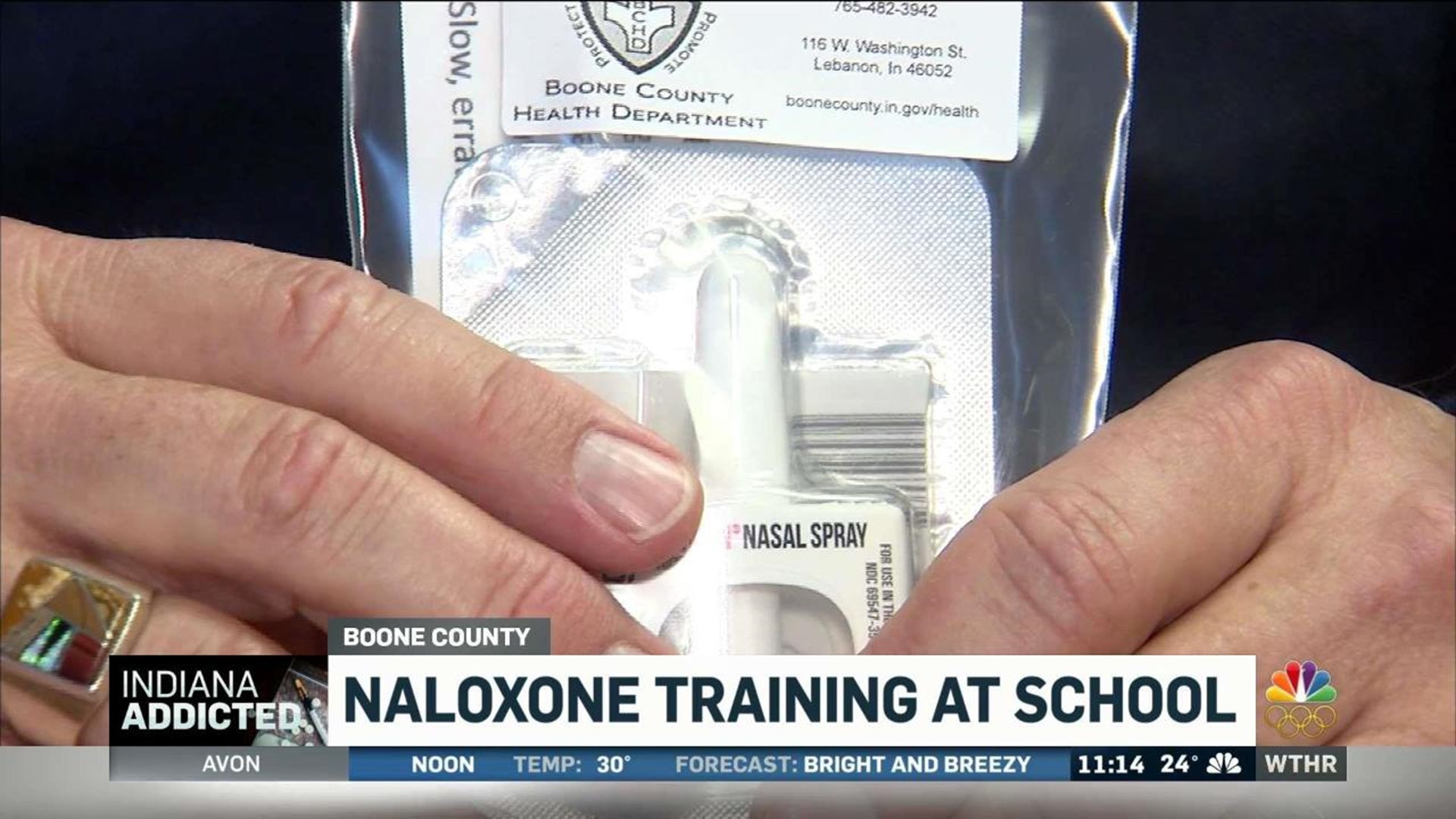LEBANON, Ind. (WTHR) - School districts across Indiana are wrestling with the growing health crisis and whether to have nalaxone nasal spray canisters on hand.
"Hopefully we never have to use it. Hopefully we never use it on a student," says Lebanon Community Schools Superintendent Robert Taylor.
But if someone overdoses on opioids in a Lebanon school building, the district will be ready.
This week, Lebanon Schools began training staff members to administer naloxone - the lifesaving nasal spray. It will keep a supply in central locations in all its schools. Nurses, athletic staff, counselors and others will get training. About 50 staff members are to be trained by next week.
"We kind of feel it won't necessarily be students we will be responding to but will be visitors to the school. Parents, friends, family members," Taylor said.
- INDIANA ADDICTED: Coverage of the opioid epidemic in the state
The superintendent has seen the introduction of portable defibrillators, school police officers, and now nalaxone, which can reverse opioid overdoses. All those rescue devices are responses to what's happening in the larger community.
"I guess if they think they need it. But it's good if they have it," said Patricia Fowler, parent of a Lebanon student.
Parents heading into a club wrestling match at Lebanon High School Thursday night were supportive.
"I think with opioids, the way everybody is now with it, I think it's good everybody has training on it because you never know. With that Narcan, it can't hurt anybody, so I think it would be a good thing," Travis Sutphin said.
"Other people I know have friends that it has happened to and it could've been prevented," Jamie Cox said.
Cox and another school workers who help the athletic department set up for matches say they're willing to be trained on administering the life-saving nasal spray, too, which includes training on recognizing the symptoms of opioid overdose.
"I've had a few friends that have passed away from this epidemic and you think back on it and think, 'What could I have done differently? What could I have done to help?'" said Jason Richardson. "It's a lot of beating yourself up."

